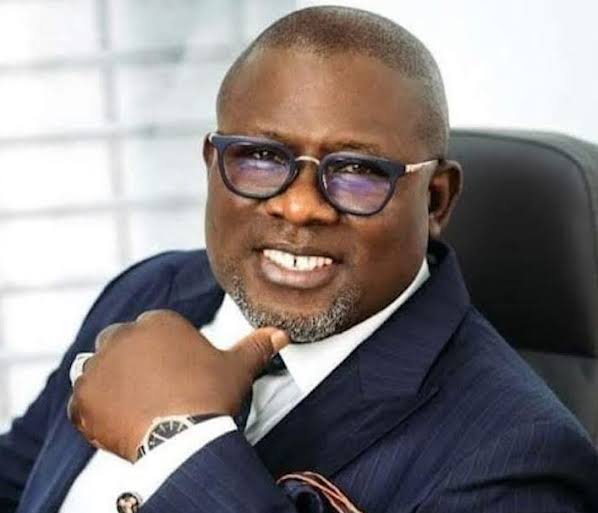BY LEKAN SOTE
It’s okay that banks have gotten the approval of the Federal Government to take over some non-performing Electricity Distribution Companies.
They are getting their due. Most of the owners neither had the technical nor the financial know-how needed to run the lemons they forced their way into buying, anyway.
Three of the Discos were considered to be technically incapacitated (technically incompetent should actually be the correct word for it) and financially insolvent after they failed to meet their obligations to the lending banks.
They went into receivership after failing to meet their loan obligations. Two other Discos reportedly lost their equity to the Assets Management Corporation of Nigeria, the special purpose vehicle used by the government to deal with toxic or non-performing debts.
The previous management of one of the Discos has, however, challenged the move of the government and the creditors. Instead of looking for ways to get out of the jam, it is alleged to have even issued the following threat:
“Any attempt by (the lending bank) and/or Bureau of Public Enterprises to intervene in the manner being reported will be illegal, unlawful and will be resisted.” Lawyers and PR people can mislead anyone, just so they can squeeze a fee from unsuspecting clients.
This previous management is emphatic that “There is no contractual, statutory or regulatory basis for such,” and added that “For the avoidance of doubt, the shares of (the Disco) have not been given as security to (the lending bank) or to any other party.”
You shouldn’t wonder too much about the claim that the equity of the Disco was used as collateral for the loan it took. It is not impossible that the government that unbundled Power Holding Company of Nigeria also guaranteed the loans of the fumbling Gencos and Discos.
You may recall that not too long after the Gencos and Discos were spun off, some of their shareholders and board members donated handsomely to the electioneering campaign fund of a presidential candidate– confirmation that they got those assets due to rub-my-back-I-rub-your-back patronage.
“It is a shame that after many years of attempts to transfer ownership and management of the electricity value chain of Nigeria from fully government-owned enterprises to the halfway house commercialisation, unto partial privatisation, there is absolute failure of the system to deliver steady and adequate electricity supply to Nigerians”
If you wonder why the management of the belligerent Disco is being referred to as “Previous Management” here, it is because a new Board of Directors and Management have been appointed by the government.
Though the Federal Government will still retain its (unnecessary) 40 per cent equity stake in the defaulting Discos, this move is evidence that the Discos are subject to the provisions of the Companies and Allied Matters Act of Nigeria.
Never mind the accusation given out by their sympathisers that the takeover of the Discos by the banks and the enabling government amounted to “renationalisation and expropriation,” the usual argument of intellectuals with now outmoded socialist tendencies.
It’s also the stock response of those who may not accept that there is a rule of engagement in the proving ground of the business world and that no one, however, connected, should “aspire” to breach the rules of the game.
Former President Olusegun Obasanjo has said that no one should reinforce failure of any kind. The forces of the principle of the marketplace should be introduced to sanction incompetent and unprepared players in Nigeria’s electricity sector.
A wise man once said: “I do not mind a stupid General. Also, I do not mind an active General. But please save me from a stupid, active, General.”
In other words, most of those who jumped into the electricity industry fray exploited their networks to appropriate assets of businesses they had no idea of how to operate.
Sunday Oduntan, Executive Director of Research and Advocacy, which is probably a Non-Government Organisation, argues that the privatisation of the Nigerian electricity sector had always been flawed from the get-go.
He alleged that the Federal Government failed to meet certain conditions, while yet expecting the Discos to meet their performance obligations. You see, if those who bought the lemons were competent, they wouldn’t have bought them without the requisite due diligence.
They didn’t. And they deserve to stew in the broth that they brewed. They deserve no sympathy buying into the business with their eyes and ears firmly shut. They were rather sharp than brilliant in their eagerness to enter into this quicksand of all businesses.
Every moment lost to indecision or idleness is a lot of good money lost. As America’s former President Donald Trump would have put it, “It is what it is.” There are no two ways to run a profitable business than to run it profitably.
Oduntan alleged: “Not only were the investors shortchanged because of insufficient and unreliable data that was provided to them during (the) privatisation process… the government also… failed to deliver on Discos debt-free financial books, (due) payments of Ministries, Departments and Agencies’ electricity debts and N100 million subsidy.”
Talk like this, even if true, reminds you of the underwhelmingly performing government of President Muhammadu Buhari that keeps complaining about its predecessor government instead of rolling up its sleeves to address the task it volunteered to do.
It’s important to acknowledge though, that the government of President Buhari has done averagely well with the construction of infrastructure, even if it failed woefully to stem insecurity, arrest official graft and corruption and introduce workable macroeconomic, fiscal and monetary policies.
Kunle Olubiyo, who is President of Nigeria Consumer Protection Network, has a contrary view to that of Mr. Oduntan. He thinks that the insolvent Discos failed in their review of key performance indices.
Following are his words: “Ordinarily, the licensees had a ten years tenor. The mid-term review ought to have taken place five years into the post-privatisation exercise. This was not done across the board…”
He argued that “The so-called (Discos) failed in all benchmarked global best practices and key performance indicators. As against investment in the immediate, medium and long term, what we had is rent-seeking, profiteering and lack fiscal responsibility and much-needed discipline.” This submission is spot on.
After considering it all, he concluded that “No sector can survive if and where there are no sanctions for impunity and no consequences for infractions.” You cannot hand over something that significantly affects the livelihood of the people to irresponsible buccaneers.
In agreeing with the sanctions, he stated categorically: “In the prevailing circumstances, we are on the same page with relevant stakeholders in the present efforts to clean up the mess and free the economy held by its jugular by the non-performing utilities.”
It is a shame that after many years of attempts to transfer ownership and management of the electricity value chain of Nigeria from fully government-owned enterprises to the halfway house commercialisation, unto partial privatisation, there is absolute failure of the system to deliver steady and adequate electricity supply to Nigerians.
And this failure has an unimaginably negative impact on the economy of Nigeria. Too many manufacturing enterprises, that must of necessity depend on a constant supply of electricity for production, have collapsed, and completely gone under.
The loss of tax revenues (both personal and corporate), that all levels of government in Nigeria have had to endure and the consequent inability of the governments to provide social services and infrastructure, is unquantifiable.
So you can see that the greedy and irresponsible behaviour of those incompetents who bought (or appropriated?) the Gencos and Discos is ruining the economy of Nigeria.

